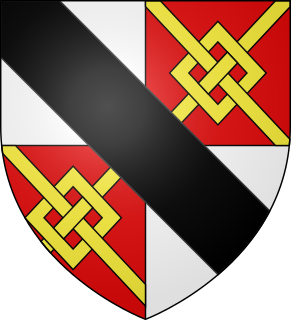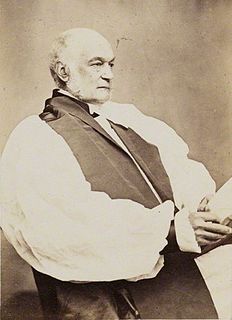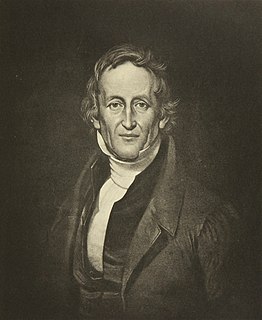
Eadburh was the daughter of King Edward the Elder of England and his third wife, Eadgifu of Kent. She lived most of her life as a nun known for her singing ability. Most of the information about her comes from hagiographies written several centuries after her life. She was canonised twelve years after her death and there are a small number of churches dedicated to her, most of which are located near Worcestershire, where she lived.
William of Wykeham was Bishop of Winchester and Chancellor of England. He founded New College, Oxford, and New College School in 1379, and founded Winchester College in 1382. He was also the clerk of works when much of Windsor Castle was built.
Nicholas Udall was an English playwright, cleric, schoolmaster, the author of Ralph Roister Doister, generally regarded as the first comedy written in the English language.

Hugh le Despenser, sometimes referred to as "the Elder Despenser", was for a time the chief adviser to King Edward II of England. He was created a baron in 1295 and Earl of Winchester in 1322.

Peter Mews was an English Royalist theologian and bishop. He was a captain captured at Naseby and he later had discussions in Scotland for the Royalist cause. Later made a Bishop he would report on non-conformist families.

George Moberly was an English cleric who was headmaster of Winchester College, and then served as Bishop of Salisbury from 1869 until his death.

Henry St. George Tucker Sr. was a Virginia jurist, law professor, and U.S. Congressman (1815–1819).

Robert Horne was an English churchman, and a leading reforming Protestant. One of the Marian exiles, he was subsequently bishop of Winchester from 1560 to 1580.

Robert Sherborne was bishop of Chichester from 1508 to 1536.
John Sandale was a Gascon medieval Lord High Treasurer, Lord Chancellor and Bishop of Winchester.
Ralph Brideoake (1612/13–1678) was an English clergyman, who became Bishop of Chichester.

Field Marshal Sir Alexander George Woodford, GCB, KCMG, was a British Army officer. After taking part in the Anglo-Russian invasion of Holland, he served in most of the battles of the Napoleonic Wars. During the Hundred Days he commanded the 2nd battalion of the Coldstream Guards at the Battle of Quatre Bras, the Battle of Waterloo and the storming of Cambrai. He went on to become lieutenant governor and brigade commander at Malta, lieutenant governor and brigade commander at Corfu and then commander of the British garrison on the Ionian Islands before being appointed Governor and Commander-in-Chief of Gibraltar.

Edward Stuart Talbot was an Anglican bishop in the Church of England and the first Warden of Keble College, Oxford. He was successively the Bishop of Rochester, the Bishop of Southwark and the Bishop of Winchester.
William Wickham (Wykeham) was an English bishop.
Robert Pink D.D. was an English clergyman and academic, a supporter of William Laud as Warden of New College, Oxford, and later a royalist imprisoned by Parliament.
John Boxall was an English churchman and secretary of state to Mary I of England.
Mary MacDuff, Countess of Fife was an English noblewoman. She was a daughter of Ralph de Monthermer, 1st Baron Monthermer and his wife Joan of Acre. Other sources have her being born in 1298.

Philip Falle (1656–1742) was a clergyman and historian of Jersey.

William Bird or Byrd (1624–c.1691) was a 17th century English sculptor. He seems to have served Oxford University for many decades as their official mason. His most notable work is the covered arch linking the two sections of New College, Oxford, raised over the centre of the carriageway to allow laden haycarts to pass.
Stephen Cheston was an English lawyer and priest. He was appointed Archdeacon of Winchester under Mary I of England, and retained the position for the rest of his life, despite an attempt to remove him by legal means under Elizabeth I.
This page is based on this
Wikipedia article Text is available under the
CC BY-SA 4.0 license; additional terms may apply.
Images, videos and audio are available under their respective licenses.
 "Brideoake, Ralph". Dictionary of National Biography . London: Smith, Elder & Co. 1885–1900.
"Brideoake, Ralph". Dictionary of National Biography . London: Smith, Elder & Co. 1885–1900.









